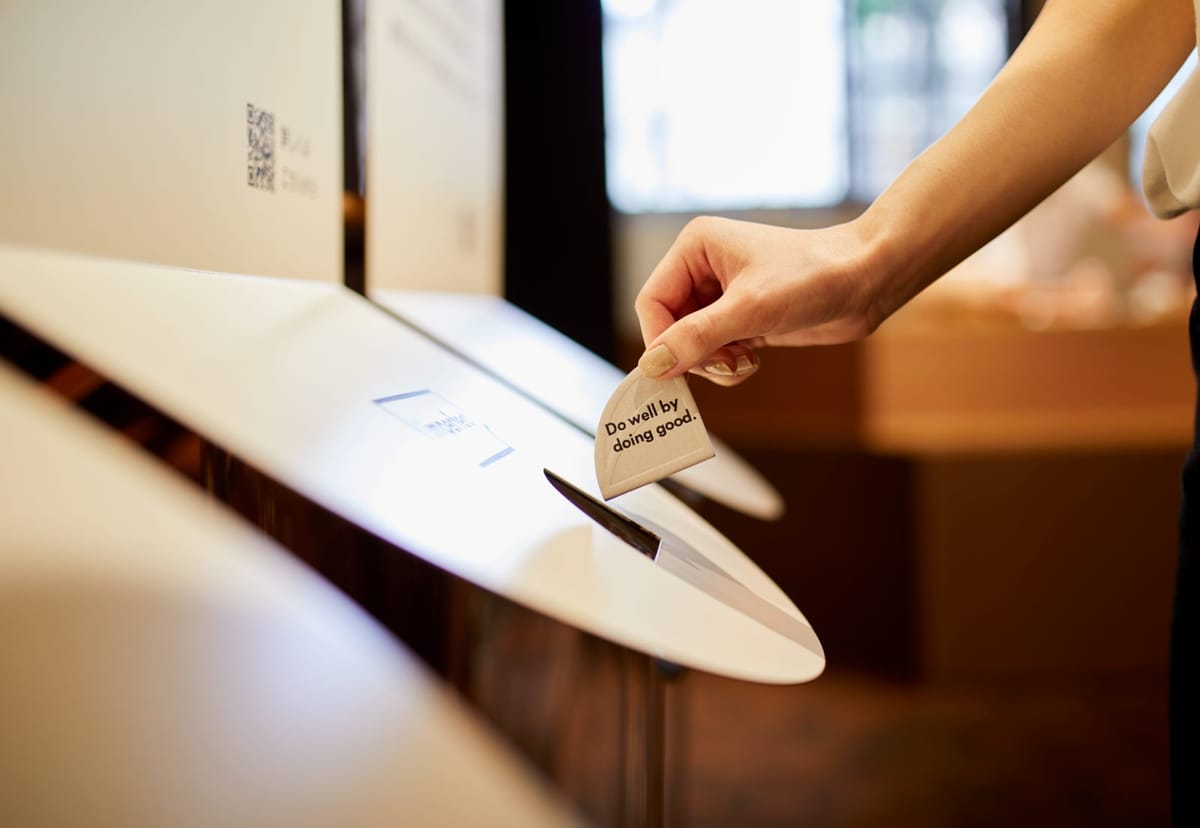Single Origin
Getting customers to help design your company’s social mission

Facts aren’t enough, says 6D founder Kishino Shogo, when speaking about his branding work for Imperfect, a chocolate shop and café in Tokyo’s Ometesando Hills shopping complex. “Good design is a necessary technology for changing people’s daily lives.”
The café’s name comes from its founder’s belief that the world is imperfect and that we should “do well by doing good.” To that end, the company’s chocolate, nuts, spices, coffee, and other goods are ethically and sustainably sourced. What was less clear, according to Shogo, was how—and how much—to express the company’s values to its customers. This was in early 2019, when, Shogo says, “there weren’t many retail brands in Japan primarily focused on social missions.”
Shogo and his client ended up making the customers active participants in the store’s mission-driven efforts. Each time someone makes a purchase, they’re given a token they can use to vote for one of three projects helping to alleviate global problems in the areas of agriculture and food security. The inaugural themes are repairing the environment to help bee populations; teaching independent farmers business and management techniques; and supporting women seeking to gain a foothold in the agricultural industry. Each year, the company donates a portion of its profits to support the cause with the most customer votes. The coin, in the shape of the company’s logo and produced in foil-stamped laminated paperboard, has a luxurious heft, meant to convey the weight of each vote.
The response, says Shogo, has been positive. “I think the social message is good to begin with, but I don’t know if the business would be successful without good design. Design enables these types of messages to spread more effectively. I hope the work we did encourages people not only to enter the café, but also to participate in its projects and think more broadly about how their consumer choices impact the world.”
“In Japan,” Shogo adds, “awareness [of these issues] is not yet widespread enough.”






